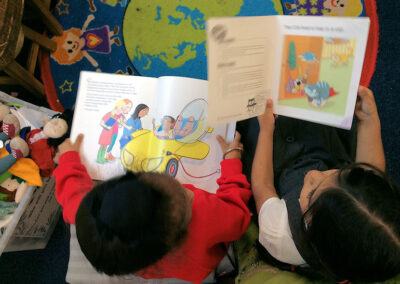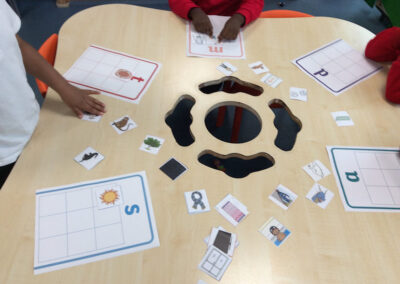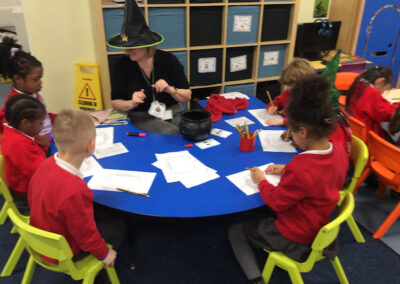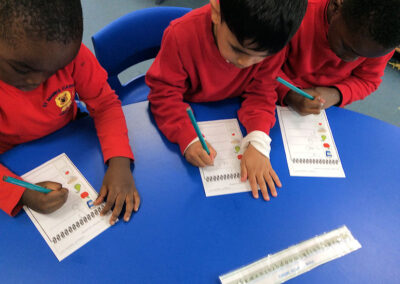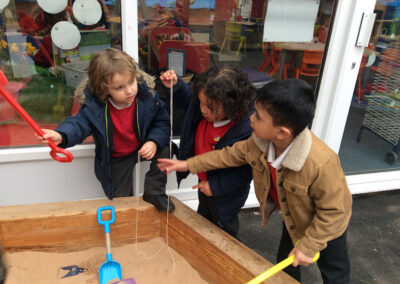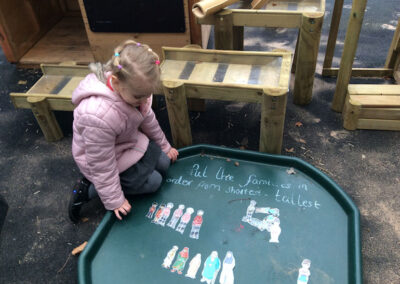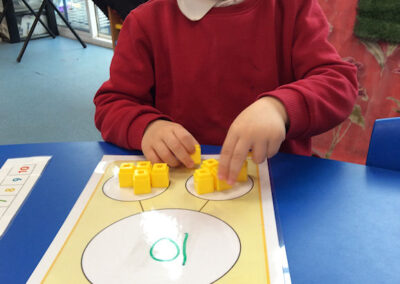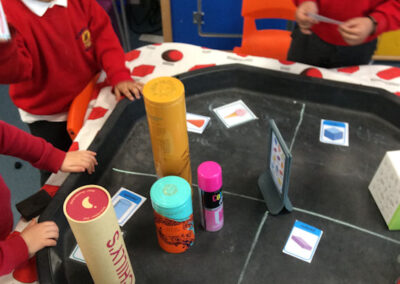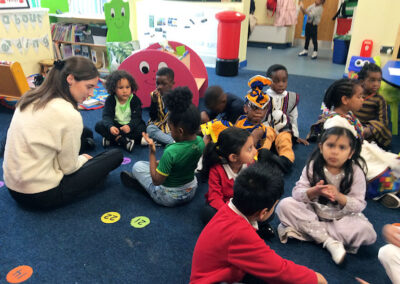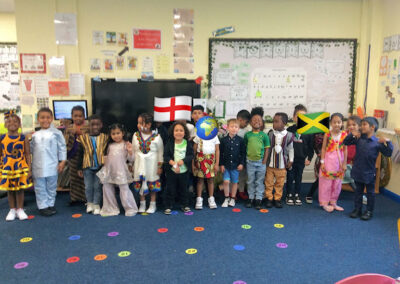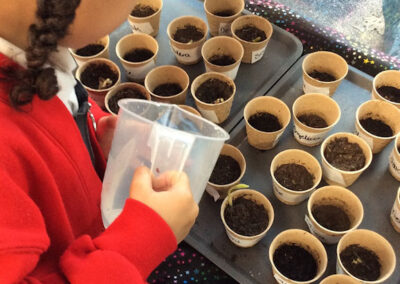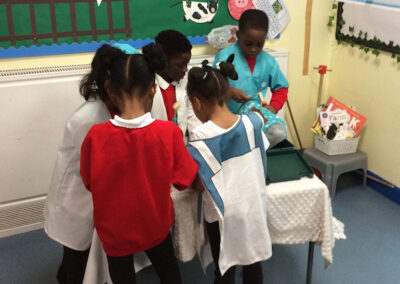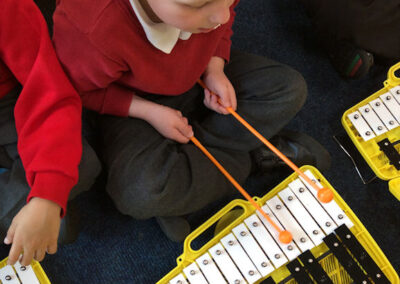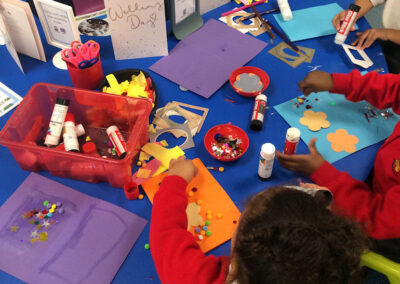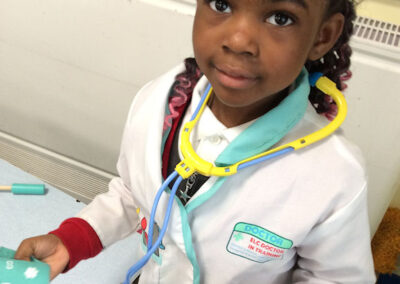EYFS Introduction
Welcome to our Early Years Foundation Stage (EYFS) pages.
Here at St. Mark’s Catholic Primary School, our Early Years begins In the Reception class as we do not have a Nursery.
Intent
At St. Mark’s we aim to support all children in developing key life skills, building a firm basis for future learning from individual starting points.
We want children to become independent, creative, respectful, confident, curious and active learners in an environment where they feel safe and secure.
Mission Statement
Proudly and joyfully, we love, live and learn as God’s children
What is the EYFS?
The Early Years Foundation Stage curriculum consists of seven main areas of learning. The Prime areas are Personal, Social and Emotional Development, Physical Development and Communication and Language. The Specific areas are Mathematics, Literacy, Understanding the World and Expressive Arts and Design.
Each area of learning is made up of sub areas of learning which are as follows:
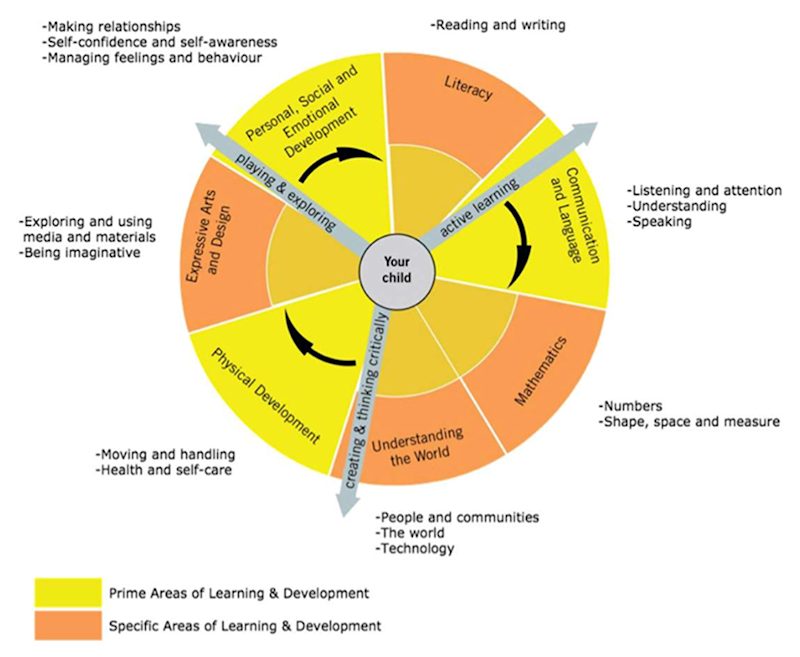
Prime Areas
Personal, Social and Emotional Development
- Self Regulation
- Managing Self
- Building relationships
Physical Development
- Gross Motor Skills
- Fine Motor Skills
Communication and Language
- Listening, Attention and Understanding
- Speaking
These seven areas are used to plan children’s learning and activities. Children in the EYFS learn by playing and exploring, being active, and through creative and critical thinking which takes place both indoors and outside.
Throughout EYFS we plan to ensure our youngest children receive high quality learning experiences that build upon existing knowledge, understanding and skills. We aim to ensure children receive rich and stimulating learning opportunities that support learning and development.
At St. Mark’s when we plan and guide children’s activities, we reflect on the different ways in which children learn. Three characteristics of effective teaching and learning are:
- playing and exploring – children investigate and experience things, and ‘have a go’;
- active learning – children concentrate and keep on trying if they encounter difficulties, and enjoy achievements; and
- creating and thinking critically – children have and develop their own ideas, make links between ideas, and develop strategies for doing things.
Taken from the Early Years Foundation Stage statutory framework – December 2023
Why is the Early Years Foundation Stage important?
Early Years is so important for giving children the foundational knowledge and skills they need for their future. It is the time where children make and establish important relationships, habits and behaviours.
Early Years is also the time when key communication, language, physical and social skills are developed.
What Does the EYFS Look Like at St. Mark’s?
In Reception at St. Mark’s, we learn through a range of structured and unstructured activities.
Play is an essential component of children’s lives. Play helps to develop important skills such as problem solving and turn taking. In addition to this, adults provide well planned activities, including adult led sessions, that are exciting and engaging and that fully take into account the needs and abilities of the children. Reception children have access to a range of different activities that promote and develop basic skills.
In our classroom you will find a happy and safe learning environment where all children are encouraged to be as independent as possible; through making choices about their learning, managing their own personal hygiene and self-care and taking responsibility for looking after equipment and resources. In the classroom you will find children who are engaged and excited about their learning and this can be evidenced through the classroom displays, observations and activities.
Our Catholic Faith is very important to us and we encourage the children to join in and say our prayers together. We ensure children are aware of the importance of prayer and reflection. Children in Reception will take part in Religious Education each week – looking at a range of topics, including the Story of Creation. Reception will take part in some prayer and liturgy, including assemblies and masses.


